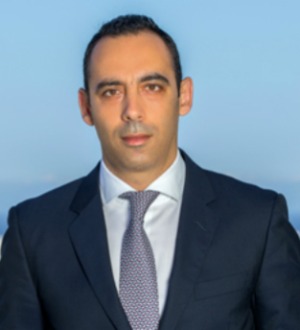An investment fund that is registered in Cyprus is a vehicle that allows investors to raise capital through various financial instruments. Cyprus law provides various investment options which allows investors to reap significant benefits in terms of profits, risk mitigation, tax planning opportunities, and greater safety in business due to transparency in laws and financial regulations.
Under Cyprus law, there are two distinct types of investments funds: Alternative Investment Funds (AIF) and Undertakings for Collective Investment in Transferable Securities (UCITS).
What are Cyprus Alternative Investment Funds (AIF)?
An “AIF” is a collective investment fund designated for raising external capital from a number of investors with a view to investing funds in favor of those investors according to a defined investment policy. The Law provides two types of “AIFs” – a.) with a limited number of persons (“AIF-LNP”) up to 50 persons (which is considered to be more flexible); and b.) an unlimited number of persons (“AIF-UNP”).
The legal basis for regulating the respective relationships is the Alternative Investment Funds Law of 2014, which is aimed at updating local legislation in accordance with EU Directives- especially with respect to investor protection and transparency. After enactment of the 2014 Law, Cyprus became more attractive for the international investors by providing a comprehensive spectrum of the legislative framework for all types of funds. Moreover, the Alternative Investment Funds Legislation of 2018 has been enacted and will come into effect as soon as it is published in the official Government Gazette. This legislation will allow for the establishment of the Registered Alternative Investment Funds (“RAIF”) in Cyprus which investors may find particularly attractive given that:
- it has no minimum capital requirements;
- it may be open- or closed-ended;
- appointment of the local depository is required;
- the number of the investors is unlimited;
- it is available only for well-informed and/or professional investors (see below);
- it is subject to registration in the Central Register, but it will not fall under the direct supervision of CySEC.
The RAIF may operate with multiple compartments provided that it is envisaged by its constitutional documents.
The AIF with a limited number of persons is not subject to the minimum share capital requirements and other investment restrictions and can invest in any assets (real property, derivatives, equities, etc.). This type of AIF may be marketed only to “Professional” and/or “Well-informed” investors. “Professional clients” are regarded as clients who possess the experience, knowledge and expertise to make their own investment decisions and who are able to properly assess related risks. “Well-informed” clients are “non-professional” investors who have confirmed in writing that they are aware of the nature of their investment operations and assume the appropriate risks. In addition, they shall invest at least €125,000 in an AIF or be successfully assessed by a bank, investment firm or UCIT management company as a well-informed investor with the required level of expertise and knowledge.
Typically, there are low registration and maintenance costs for AIF-LNPs. Unlike any other types of AIFs, this particular one does not involve any restrictions with respect to investment patterns and mandatory investment diversification. The operation of the AIF-LNP requires the appointment of an Investment Manager, an auditor, a Custodian and a Fund Administrator. However, if the operation of the AIF-LNP is not in excess of the established financial criteria then no minimum initial capital requirements and investment diversification requirements are required. This type of AIF is suitable for wealthy families and private clients.
The AIF-LNP may exist either as an:
- Investment Company (as a limited liability company with fixed or varied capital); or
- a Limited Partnership.
The AIF with unlimited number of persons may be subject to investment restrictions (depending on the type of investors) for the purpose of reducing the investment risk and is subject to the minimum share capital requirements (at least €125,000 or €300,000, where it is formed as a self-managed investment company). This type of AIF may be marketed to any type of investors, including professional, well-informed and retail investors. A “retail” investor is an investor who does not fall within the category of a professional or a well-informed investor. The AIF-UNP may be either self-managed when it is established as an Investment Company, or managed externally by a portfolio manager. Both options are subject to registration in the special register maintained by CySEC.
The AIF-UNP may be registered as a(n):
- Common Fund;
- Investment Company as a limited liability company with fixed or varied capital; or
- Limited Partnership.
What is an Undertakings for Collective Investment in Transferable Securities (“UCITS”)?
A UCITS is a collective investment consisting of publicly collected capital in transferable securities, money market instruments, deposits and any other investments via stock markets and bank deposits. UCITS offer a variety of advantages and perhaps the most important benefit is that every investor enjoys professional management of his/her assets. Other benefits include having access to those investments instruments which he/she would not have access to as an independent investor. UCITS also provide a high level of safety and high institutional protection.
General Characteristics of the UCITS:
- The UCITS shall be an open-ended investment undertaking and shall be marketed to the public in Cyprus or other EU member states in accordance with the law.
- Its units shall, at the request of holders, be repurchased or redeemed, directly or indirectly, out of the assets of undertakings.
- UCITS mainly operate to diversify risk.
- Its objects are strictly limited to collectively investing capital raised from the public, in securities and/or in other liquid financial instruments.
- Its regulations or constitutional documents must provide for the sale of its units to third countries / the public in Cyprus.
- Its borrowing policies shall comply with the conditions set out in Directive 2009/65/EC.
A UCITS may act either as a Mutual Fund or a Variable Capital Investment Company.
Mutual Funds are one of the most popular types of collective investment vehicles. The investors, instead of acting separately, combine their capital and create a common asset to invest in securities (such as equities, bonds and other market instruments) within the concept of the UCITS. The manager of the fund and the custodian of this type of the UCITS shall satisfy the criteria required by the CySEC.
A Variable Capital Investment Company is typically a public liability company with a variable capital depending on subscriptions and redemptions performed in conjunction with the valuation of the assets. Custody of the assets is normally assigned to an approved custodian. The management of the assets is carried out by the fund manager assigned by the CySEC.
What are the advantages of investing money in Cyprus?
- Being an EU member state, Cyprus has implemented all EU standards, directives and regulations including those with respect to investments funds and schemes;
- Cyprus is advantageously located between three continents and is economically connected with Europe and Asia;
- Cyprus has an economically and politically stable environment;
- Cyprus can offer an up-to-date regulatory framework that conforms to the relevant EU directives and provides full transparency and flexibility for those who are interested in making investments in Cyprus;
- Registration and operational cost with respect to the various types of investment vehicles in Cyprus are among the lowest in the EU;
- Investors are offered a quite favorable tax regime and tax planning opportunities, as there are no specific tax requirements with respect to the Cypriot AIFs and UCITS. The above investment funds enjoy all of the tax advantages offered by the Cypriot tax legislation. which include but are not limited to:
- Double taxation treaties with more than 60 countries;
- Foreign dividends are exempted from taxation (subject to some conditions); and
- No withholding taxes on repatriation of dividends, interest and royalties to non-residents.
Cyprus is now one of the fastest growing centers of investment funds in Europe due to the continuous development of its legal and financial regulatory framework. Moreover, Cyprus’s thriving financial services sector makes it one of the leading jurisdictions in Europe in the investment domain. Through our highly-qualified lawyers, who have in-depth experience working with local and international investment funds, our company is proud to offer our clients a wide range of services including tax planning, registration and administration of various types of investment funds, reporting and compliance with legal and regulatory requirements based on the individual requirements of clients in accordance with the highest professional standards.
Please review our latest article about RAIF | New type of funds (Cyprus): The Registered AIF (RAIF).
For more information visit our web page about Investment Funds in Cyprus.



















